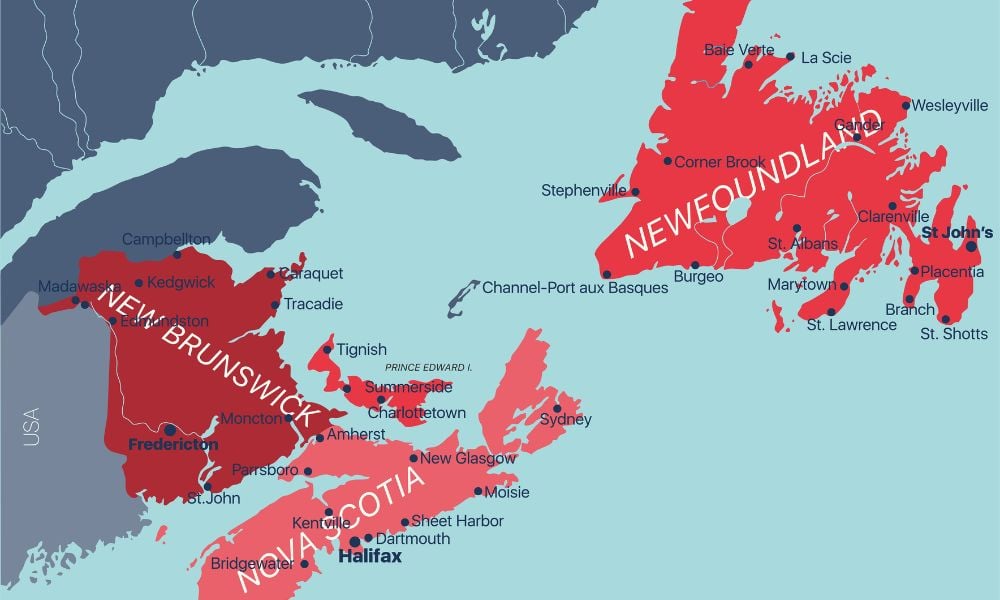
With labour shortages growing and trade barriers in the spotlight, two provinces are joining forces to open doors for workers and businesses

In a move to tackle interprovincial trade barriers, the governments of New Brunswick and Newfoundland and Labrador have signed a memorandum of understanding (MOU) aimed at enhancing free trade and labour mobility.
Premiers Andrew Furey and Susan Holt signed the MOU last Thursday afternoon at the Confederation Building in St. John's.
The agreement commits both provinces to improve the flow of goods, services and labour, and to continue working to create conditions that will drive new investments and strengthen economic activity across Canada.
“We’re working to ensure that all products, services and credentials that are approved by Newfoundland and Labrador are automatically recognized by New Brunswick and vice versa,” said Holt.
For New Brunswick, this deal marks the second such agreement in recent weeks, following a similar MOU signed with Ontario. It also complements legislative efforts underway to ease labour mobility across provinces.
Last month, the New Brunswick government introduced amendments to the Fair Registration Practices in Regulated Professions Act that would allow workers in regulated fields to begin employment while awaiting full registration — a move aimed at speeding up credential recognition and addressing labour shortages.
“This partnership reflects the shared commitment of our two provinces to build a more connected Atlantic Canada for the betterment of our residents and economy,” said Furey.
This agreement reflects broader efforts by premiers across the country, alongside the federal government, to reduce internal trade barriers and combat tariffs from the United States. According to officials, Newfoundland and Labrador ranks as New Brunswick’s fourth-largest trading partner based on two-way trade volume.
As part of the agreement, the provinces outlined several key commitments:
Work toward removing internal trade barriers to boost labour mobility, the flow of goods and services, and investment.
Ensure that regulated workers approved in one province are automatically recognized in the other.
Recognize goods and services approved for sale or use in one province as acceptable in the other.
Encourage other Atlantic provinces — and eventually other Canadian provinces — to join efforts to liberalize internal trade.
Collaborate on aligning regulated occupations and registration processes while maintaining public safety standards.
Facilitate better market access while respecting the role of Crown entities in each jurisdiction.
Clarify that the MOU is non-binding and does not create legal or financial obligations.